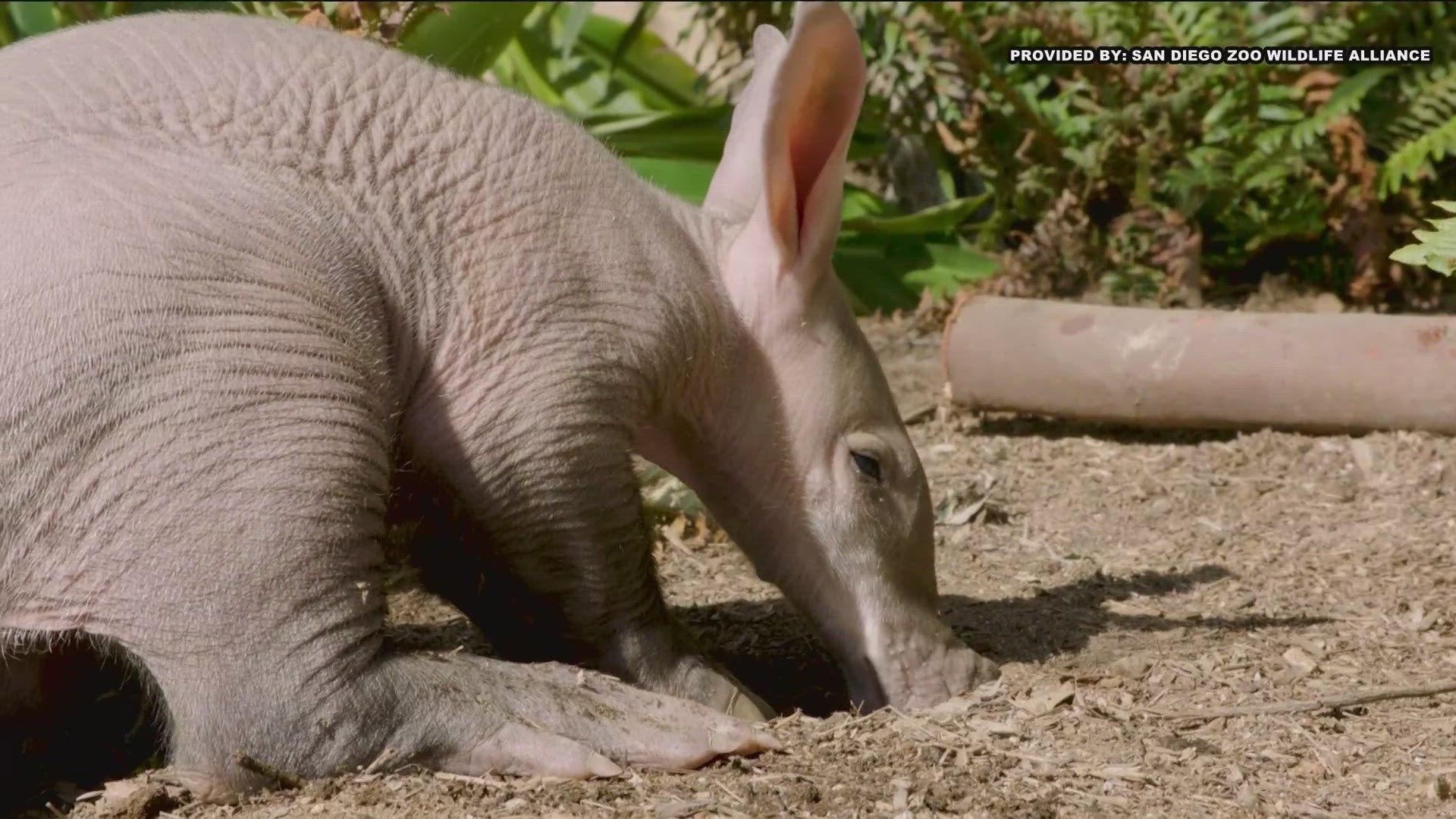SAN DIEGO — Move over Moo Deng: A new, adorable baby animal has arrived in San Diego.
Though they don't have a name yet, the San Diego Zoo Wildlife Alliance said the first aardvark calf ever born at the safari park is "strong, confident and curious."
Zoo officials announced the calf's birth in a release Tuesday morning. The aardvark was born in July, making history as the first calf of parents Padmae and Azaan and the first aardvark born at the San Diego Zoo Safari Park.
Zoo officials said Padmae is adjusting well to her new role as a mom, describing her as "intuitive, nurturing and patient." She is often seen grooming and nursing her calf as they bond in their burrow.
When can we see the baby aardvark?
The calf and their mom are bonding in the privacy of their borrow and are not viewable to the public yet.
Zoo officials said the pair may be part of certain behind-the-scenes tours, representing their species as aardvark ambassadors.
What does 'aardvark' translate to?
"Aardvark" is derived from Afrikaans and translates to "earth pig."
The animal is native to sub-Saharan Africa.
Aardvarks are solitary creatures in the wild, the zoo says. Mothers typically raise calves on their own, nursing until the baby is about six months old. At that point, aardvarks are able to forage for food on their own.
Ants and termites make up a majority of an aardvark's diet: An adult can eat up to 50,000 insects in a single evening.
Aardvarks are nocturnal. Their strong front legs and long claws allow them to dig burrows up to 10 feet deep, where they hide during the day. The animals emerge at night to slurp up ants and termites with a long, sticky tongue.
"As a nocturnal and elusive species, not much is known about their reproductive, birthing and rearing behavior," Zoo officials said in a release. "Through behavioral observation and hormone analysis, Wildlife Care, Health and Conservation Science teams at San Diego Zoo Wildlife Alliance are gathering critical reproductive, sleep, nursing, weight and growth data to better understand aardvark biology."
Though aardvarks are classified as a species of Least Concern on the International Union for Conservation of Nature (IUCN) Red List of Threatened Species, the zoo says they are currently at risk because of hunting and the loss of their habitat.
WATCH RELATED: San Diego Zoo welcomed baby hippo in 2011

